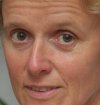Rosslare Europort has announced a 200 million euro investment plan to establish an offshore renewable energy (ORE) hub with potential creation of 2,000 jobs.
A total of 350 million euro will be invested with implementation of a Rosslare Europort masterplan, establishment of a permanent border control post and provision of a new access road, according to the port’s management.
The initiatives will be outlined at a seminar in Rosslare today, Friday April 22nd, attended by Minister of State for Justice James Browne, Iarnród Éireann chief executive Jim Meade and Rosslare Europort general manager Glenn Carr.
Rosslare Europort “made history” in 2021 when it became Ireland’s leading port for direct RoRO/Pax services to Europe, management said.
“The national Climate Action Plan targets five gigawatts from ORE by the end of 2030, and Rosslare has unmatchable advantages to support this, and act as a new sustainable hub for the south-east,”it says.
The port is “uniquely located within 60 nautical miles of most of the planned [ORE] developments in the Irish and Celtic seas”, it says.
Key requirements such as marshalling, assembly, staging and load out of key components, ongoing operations, maintenance and crew transfers can be provided for from Rosslare,it says.
Rosslare Europort management says it has the “support of national and local government, industry and tourism, including the notable support of Port of Waterford”.
The masterplan for the port includes digitalisation of systems and operations, provision of new freight and passenger facilities, storage, export and import facilities, and a berth extension.
The Office of Public Works also plans to develop a permanent border control post within the port, while Transport Infrastructure Ireland is planning a new N25 Rosslare Europort access road.
It says expert ORE consultants have been appointed to “bring the project to planning”, while financial consultants have been appointed to “develop the detailed business case and funding options”.
It says an application is being submitted to the EU Connecting Europe facility for 50% co-funding for the studies and designs for planning.
“Rosslare Europort has been to the forefront of our national response to some of the most critical issues we have faced in recent times,” Meade said.
“Working with State agencies, Rosslare prepared for and responded to Brexit, transforming our direct connections to the continent of Europe,” he said.
“In recent weeks, we have ensured the rapid and successful establishment of reception facilities for Ukrainian refugees arriving to our shores. Now, as we face the urgent need for decarbonisation and to ensure energy security, the board and management of Iarnród Éireann fully supports the ambitions of Rosslare Europort to be Ireland’s ORE hub,” he said.
Rosslare Europort general manager Glenn Carr said “we have engaged extensively at European, national and regional level to understand the needs of the ORE industry”.
“It is clear that not only is Rosslare Europort uniquely placed to support the development of the industry, but that this development can be a transformative one for the south-east region,” he said.
Carr said the south-east “can be to offshore renewables what Dublin’s Silicon docks are to the tech sector”.


























































